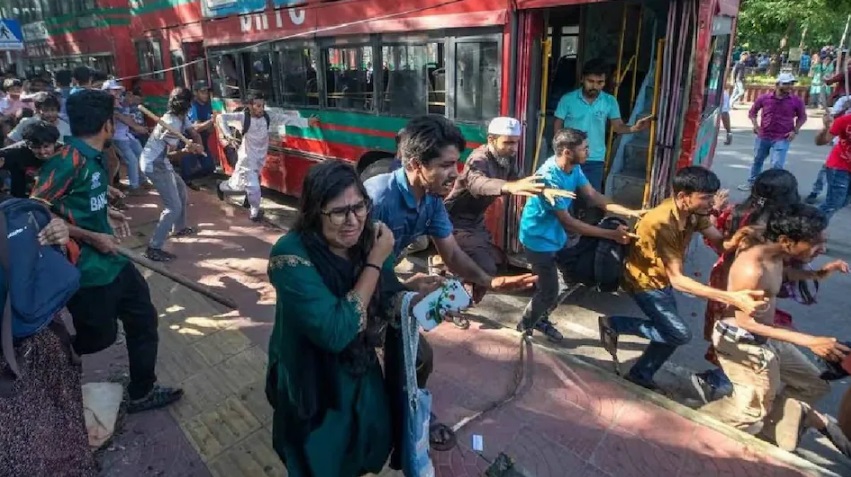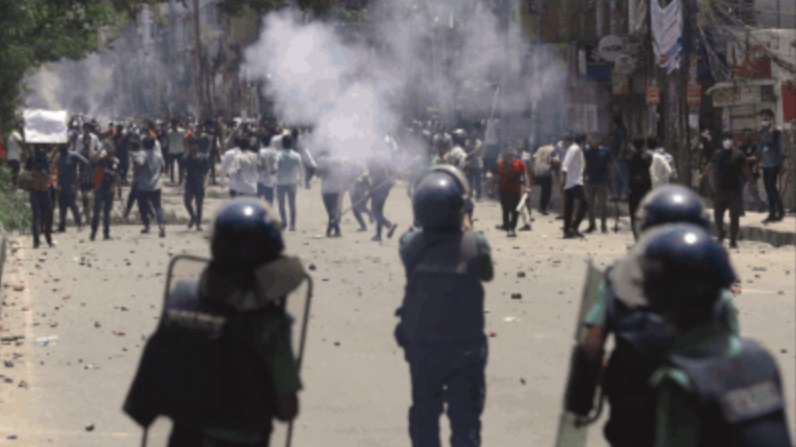
39 Dead in Violent Clashes Over Quota System Dispute in Bangladesh
Protests have swept across Bangladesh, with demonstrators and police engaging in fierce fights in the capital city of Dhaka and other regions as students attempted to disrupt transportation networks nationwide
Bangladesh has been plunged into chaos as violent clashes that broke out between student protesters, security forces, and pro-government activists have left at least 39 people dead. The unrest reached its peak on Thursday, which marked the deadliest day of the since the clashes began.
Protests have swept across the country, with demonstrators and police engaging in fierce fights in the capital city of Dhaka and other regions as students attempted to disrupt transportation networks nationwide.
In the midst of the turmoil, communication services in Bangladesh have been severely disrupted, with reports indicating a near-total internet shutdown and limited phone connectivity following government measures to curb the unrest.
The demonstrations stem from grievances over a government policy that reserves 30 percent of public sector jobs for the families of individuals who fought in the 1971 War of Independence from Pakistan.

Protesters argue that the system is discriminatory and favours supporters of Prime Minister Sheikh Hasina’s ruling Awami League.
Despite the government’s move to abolish the quotas in 2018, a High Court ruling later reinstated them, sparking further outrage among demonstrators. The country’s Supreme Court is scheduled to hear the government’s appeal on the issue on August 7.
In response to the escalating violence, Prime Minister Hasina called for peace and pledged to address the protesters’ concerns. She vowed to conduct judicial inquiries into the incidents and hold those responsible accountable for their actions.
International leaders, including UN Secretary-General Antonio Guterres, have called for restraint and urged authorities to investigate the violence. Guterres emphasised the need for peaceful dialogue and meaningful engagement with youth to address the challenges facing Bangladesh.
The situation remains tense as the nation grapples with the aftermath of the deadly clashes and seeks a path toward resolution amid mounting public unrest.


